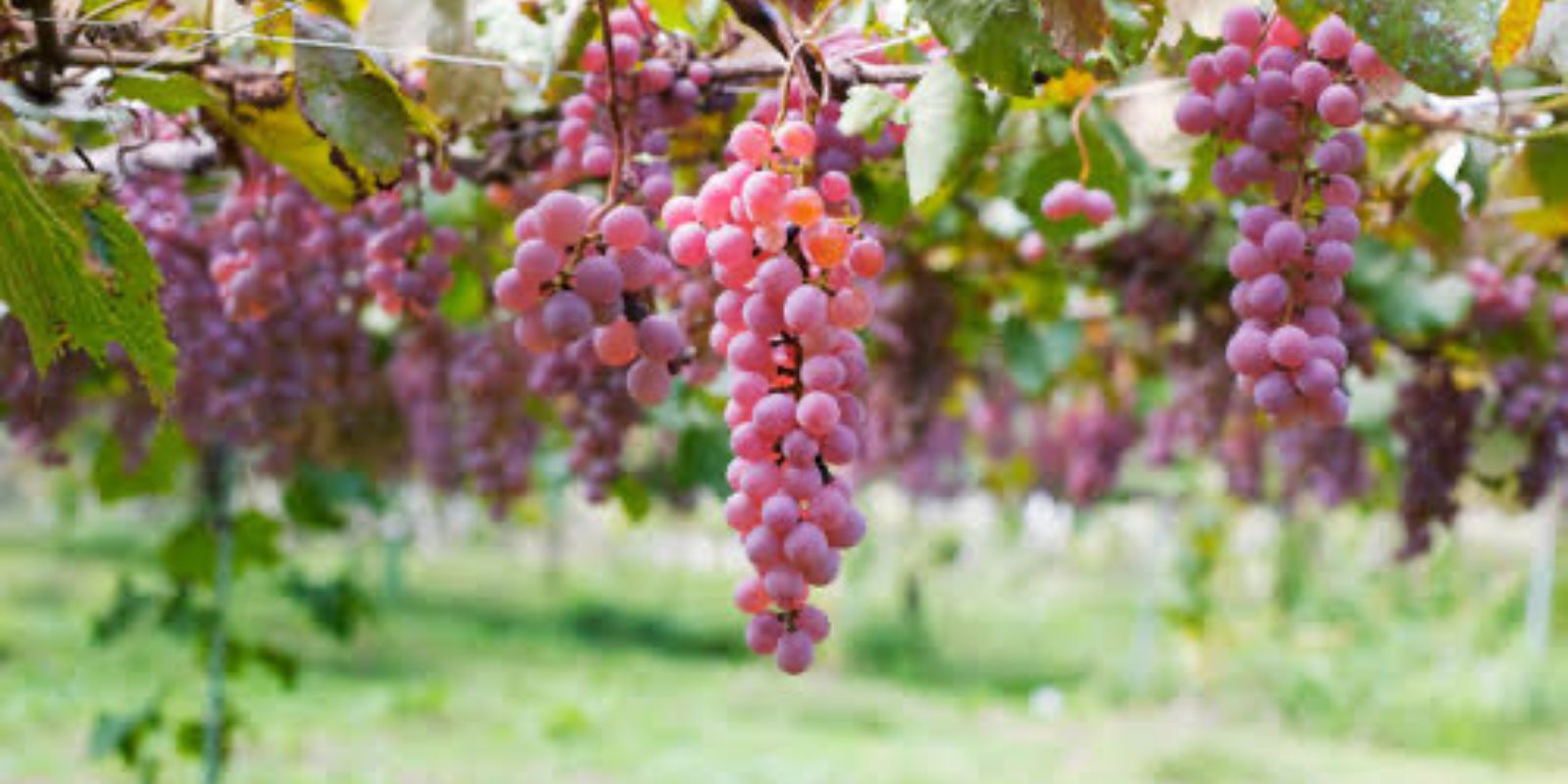Koshu grapes, a rare and ancient Japanese grape variety, have captured the attention of the world with their unique flavors and fascinating history. This grape, dating back over 1,000 years, is said to be a hybrid of Vitis vinifera, the common grapevine, and Vitis Davidii, a wild Asian vine. Known for its delicate pinkish hue, resilience, and light floral notes, Koshu has become a symbol of Japan’s winemaking heritage and agricultural innovation.
In this article, we’ll explore the origins of Koshu grapes, their cultivation methods, and why they deserve a special place in your garden or vineyard.
The History of Koshu Grapes
The Koshu grape’s journey begins in ancient Asia, where its hybridization is believed to have occurred naturally. Introduced to Japan through the Silk Road, it found a home in the fertile soils of Yamanashi Prefecture, the heart of Japanese viticulture. With its distinct lineage and over a millennium of cultivation, Koshu has become a hallmark of Japanese winemaking.
Unlike many modern grape varieties, Koshu is steeped in tradition. It has been nurtured with precision and care, embodying the Japanese philosophy of harmony between nature and human craftsmanship. Today, it is celebrated not only for its historical significance but also for its ability to produce premium wines with subtle, nuanced flavors.
Why Grow Koshu Grapes?
Koshu grapes are an excellent choice for gardeners and wine enthusiasts alike. Here’s why:
- Unique Heritage: Growing Koshu allows you to connect with a grape variety that has survived for centuries.
- Resilient Nature: Koshu is naturally resistant to pests and diseases, making it an eco-friendly choice.
- Versatile Use: Whether for winemaking, fresh consumption, or creating unique dishes, Koshu is highly adaptable.
- Aesthetic Appeal: The pinkish hue of Koshu grapes adds a touch of beauty to your garden or vineyard.
How to Grow Koshu Grapes in Your Garden
Growing Koshu grapes requires attention to detail, but the rewards are well worth the effort. Follow these steps to cultivate this ancient variety:
1. Select the Right Location
Koshu thrives in sunny areas with good air circulation. Choose a site that receives at least 6-8 hours of sunlight daily. Ensure the soil is well-drained to prevent waterlogging, which can harm the roots.
2. Prepare the Soil
Koshu grapes prefer slightly acidic to neutral soil (pH 6.0-7.0). Enrich the soil with organic compost or well-rotted manure to provide essential nutrients. Test the soil beforehand to determine if amendments are necessary.
3. Planting the Vines
- Timing: Plant Koshu vines in early spring after the danger of frost has passed.
- Spacing: Space the vines 6-8 feet apart to allow adequate airflow and sunlight penetration.
- Depth: Dig holes deep enough to accommodate the root system, and ensure the graft union is above the soil line.
4. Provide Support
Install trellises or arbors for the vines to climb. Koshu grapes are vigorous growers and need sturdy support to thrive.
5. Watering Wisely
Water the vines consistently, especially during dry periods. Avoid overwatering, as Koshu grapes prefer moderate moisture levels. Drip irrigation is ideal for maintaining consistent hydration without waterlogging.
6. Pruning and Training
Pruning is crucial for Koshu grapes to promote healthy growth and fruit production. Follow these guidelines:
- Winter Pruning: Prune vines in late winter when they are dormant. Remove weak or dead wood, and shape the plant for optimal growth.
- Summer Pruning: Trim excess foliage to improve airflow and sunlight exposure, focusing on fruit-bearing canes.
7. Fertilizing for Success
Fertilize the vines with a balanced, low-nitrogen fertilizer during the growing season. Over-fertilization can lead to excessive foliage growth at the expense of fruit production.
8. Pest and Disease Management
Koshu’s natural resistance to many pests and diseases reduces the need for chemical treatments. However, regular inspections are essential. Use organic sprays or homemade remedies to manage issues like aphids or mildew if they arise.
9. Harvesting Koshu Grapes
Koshu grapes are typically ready for harvest in late summer to early autumn. Look for clusters with a soft pinkish hue and taste-test a few grapes for sweetness. Handle the fruit gently to avoid damage.
Caring for Koshu Vines Long-Term
Proper care ensures that your Koshu vines remain productive and healthy for years to come. Here are some additional tips:
- Winter Protection: In colder climates, mulch around the base of the vines to protect roots from freezing temperatures.
- Regular Inspections: Monitor the vines for signs of stress, such as wilting leaves or stunted growth. Address issues promptly.
- Crop Rotation: Avoid planting Koshu vines in soil previously used for other grape varieties to minimize disease risk.
The Unique Flavor Profile of Koshu Grapes
Koshu grapes are known for their delicate flavors, which combine light floral notes with hints of citrus and minerality. These characteristics make them ideal for creating crisp, refreshing white wines that pair well with Japanese cuisine and other light dishes. Fresh Koshu grapes are also a delightful snack, offering a burst of sweetness with a slightly tangy finish.
Why Koshu Deserves a Place in Your Garden
Incorporating Koshu grapes into your garden is not just about growing fruit; it’s about embracing a piece of history and culture. This ancient variety embodies resilience, beauty, and sustainability, making it a valuable addition to any garden or vineyard.
Whether you’re an experienced gardener or a beginner looking to try something unique, Koshu grapes offer an opportunity to cultivate a plant with both aesthetic appeal and practical benefits. From their stunning appearance to their versatile uses, these grapes are a testament to the enduring legacy of Japanese horticulture.
Start Growing Koshu Grapes Today!
Now that you know how to grow and care for Koshu grapes, why not take the plunge? Transform your garden with this ancient variety and enjoy the satisfaction of cultivating a plant with deep historical roots. Share your journey and connect with other gardening enthusiasts!
#KoshuGrapes #RareFruit #AncientVines #GardeningTips #SustainableGardening #JapaneseHeritage #GrowYourOwn #VineyardDreams #ExoticFruits #NatureLovers

